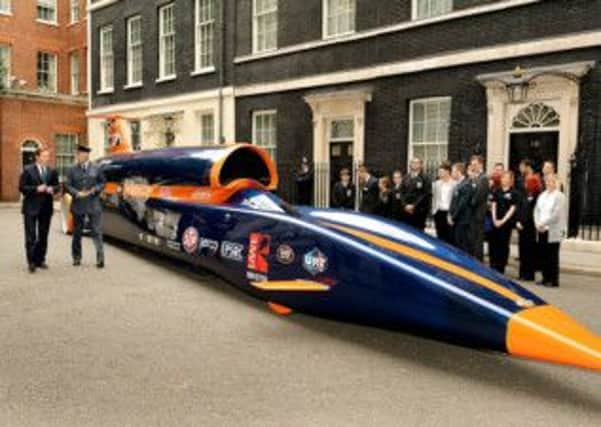Newburgh Engineering targets contracts in nuclear industry


The Rotherham-based component manufacturer plans to be at the forefront of companies bidding for contracts once a new wave of nuclear reactors starts to be built in the UK and overseas.
In recent years, a few countries have started looking at nuclear again, in particular Britain, which realised it was a decade away from a severe power capacity crunch.
Advertisement
Hide AdAdvertisement
Hide AdDavid Cameron gave the green light for Britain’s first new nuclear power station in decades, Hinkley Point, last year.
Newburgh, which celebrates its 75th anniversary this year, has been supplying precision components to the nuclear industry for almost 60 years.
Managing director David Greenan said: “We are looking to get work going on nuclear reactors this year. We are working with the Nuclear Advanced Manufacturing Research Centre to make sure we are at the forefront of UK companies bidding for contracts when they start building.”
Newburgh, which employs 135 staff including 24 apprentices, is a specialist manufacturer of component parts and assemblies for the nuclear, defence, oil and gas, petrochemical, aerospace and power generation industries.
Advertisement
Hide AdAdvertisement
Hide AdThe company produced a gear box casing for the Bloodhound Super Sonic Car, which aims to raise the World Land Speed Record to more than 1,000 miles per hour.
Newburgh, which also has a site in Bradwell, Derbyshire, reported a pre-tax profit of £586,021 in the year to March 31 2013, compared to £444,045 the year before, on a turnover of £11.8m – up from £9.8m, according to accounts filed at Companies House.
Mr Greenan, former operations director who became managing director in 2012, said projects in the oil and gas sector, many of which were cancelled during the recession, were now coming back. The sector now forms about 45 per cent of Newburgh’s business.
“We are seeing the main growth in the business coming from the oil and gas sectors and a large increase in exports,” he said. “We are targeting oil and gas customers in Europe and Norway and have been working with UK Trade and Investment to do that.”
Advertisement
Hide AdAdvertisement
Hide AdThe company has also invested £750,000 in new machinery for making components for the oil and gas industry which Mr Greenan said has streamlined and speeded up the process. “There are always people trying to do things quicker and better than you so you have to stay ahead of the competition,” Mr Greenan said.
The economic conditions forced the company to diversify into new areas in recent years, including rail, power generation and the printing sector, to reduce its dependency on one industry.
In a statement published with its accounts, the firm said: “As for many businesses of our size, the business environment in which we operate continues to be challenging.
“The markets in which we operate are highly competitive and margins remain tight. Competition comes from both home and abroad as, increasingly, manufacturing in the UK suffers against cheaper foreign competitors.”
Advertisement
Hide AdAdvertisement
Hide AdChairman Vince Middleton has admitted in the past that the company didn’t react quickly enough when the recession came.
But the main problem affecting Newburgh, and the engineering sector in general, is the shortage of skills. The company relies heavily on apprentices, which make up about 20 per cent of its workforce.
“It’s an ongoing problem but we are now finding that there is a lot more interest in advanced manufacturing careers,” said Mr Greenan.
“Last year we had 300 applicants for six apprenticeships; three years ago we would have struggled to get six.”
Advertisement
Hide AdAdvertisement
Hide AdHe added: “We work with parents and schools to convince pupils that apprenticeships are a viable alternative to university.”
In October last year, it signed a partnership agreement with the University Technical College (UTC) Sheffield.
The agreement will see the company provide industry projects and visits, plus work experience placements for UTC Sheffield students.
Mr Greenan said: “It takes a while to get apprentices through the scheme but some of them are now finishing their training. There is hopefully light at the end of the tunnel and I can see an improving situation.”
Looking forward to the rest of 2014, Mr Greenan said: “We are looking to grow the business by 10 per cent, a manageable rate, and maybe take on a few people too.”